SIQUIJOR, September 7, 2022 – To utilize oversupply of dragon fruit in Siquijor, the Department of Agriculture – Special Area for Agricultural Development (DA-SAAD) Program provided forty (40) beneficiaries with specialized training on dragon fruit processing.
The training was held in two batches, on August 4 to 5, 2022, and on August 9 to 10, 2022 at Dapdap Sunset Grill, Pangi, Siquijor, Siquijor.
The participants were from the Dragon Fruit Pioneer Producers Association of Siquijor established in 2018, and later on registered to the Department of Labor and Employment on November 26, 2020. The association received inputs from FY 2018 Dragon Fruit Production Project in 2019, benefiting 20 members. In the following year, additional 20 farmers joined and received the same inputs. Prior to joining SAAD, most of the members were farmers and fisherfolk.
Since dragon fruit is highly seasonal, there is an overproduction of dragon fruits at peak harvest and about 20% of the harvested surplus in the production is wasted. Moreover, dragon fruit is usually sold at Php 100.00 to Php 150.00 per kilogram, but the value drops to Php 50.00 per kilogram during July to August, its peak harvest season. It is during these times that the dragon fruit farmers lament the low trading value of the fruit.
In response, SAAD encouraged the dragon fruit growers to process their harvest to avoid spoilage by mounting a food processing training.
This short learning project was conducted to help reduce wastage and increase the market value of dragon fruit through acquiring knowledge and ideas on various dragon fruit processing techniques and open enterprise opportunities for additional earnings.
Table 1. Dragon Fruit Production and Processing Training

They also learned to devise solutions for common dragon fruit production problems such as insect pests, diseases, and other problems (lack of institutional support, high cost of infrastructure, and lack of technical knowledge).
Finally, with the food processing and demonstration, dragon fruit growers may welcome entrepreneurial opportunities in the production of dragon fruit wine, jam, and juices.
Mr. Eduardo Reno, a participant, thanked the program for the inputs provided to them.
“Nagpasalamat ako ug dako nga nadugangan ang akong kahibalo aning processing para dili na mausik ang akong abot nga dragon fruit kung dili man gani kini mahalin. Ug nag-awhag pod ako sa akong mga kauban nga dragon fruit farmers nga magmadasigon kita para makab-ot nato atong damgo para sa atong kaugalingon ug para sa atong grupo. Salamat kaayo, DA-SAAD,” shared Reno.
(I am very grateful that I joined the training. I have learned a lot about processing to avoid waste on the surplus of dragon fruit during peak season. I urge my co-farmers to continue to be motivated for us to achieve our desires in life and for our group. Thank you so much, DA-SAAD!)
Also present during the training were: Siquijor Officer-In-Charge-Agriculture Program Coordinating Officer Julius M. Galvan, DVM, Siquijor Representative Zaldy S. Villa, and Siquijor Chief of Staff Atty. Dale Louis Tudtud. ###
Writers:
Jolina T. Daño, DA-SAAD Region 7 Information Officer
Agnes Guanella M. Café, DA-SAAD Siquijor Focal

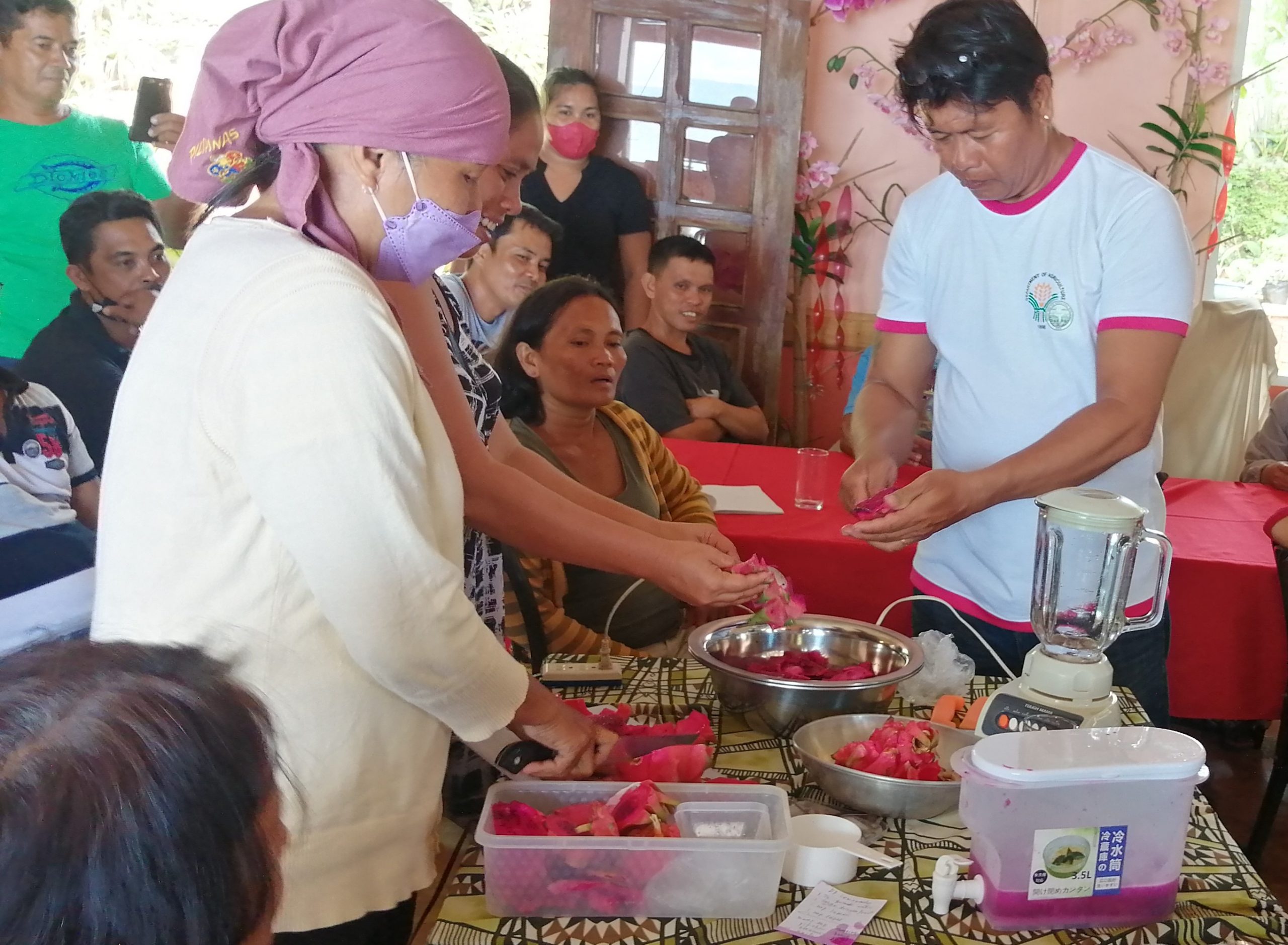
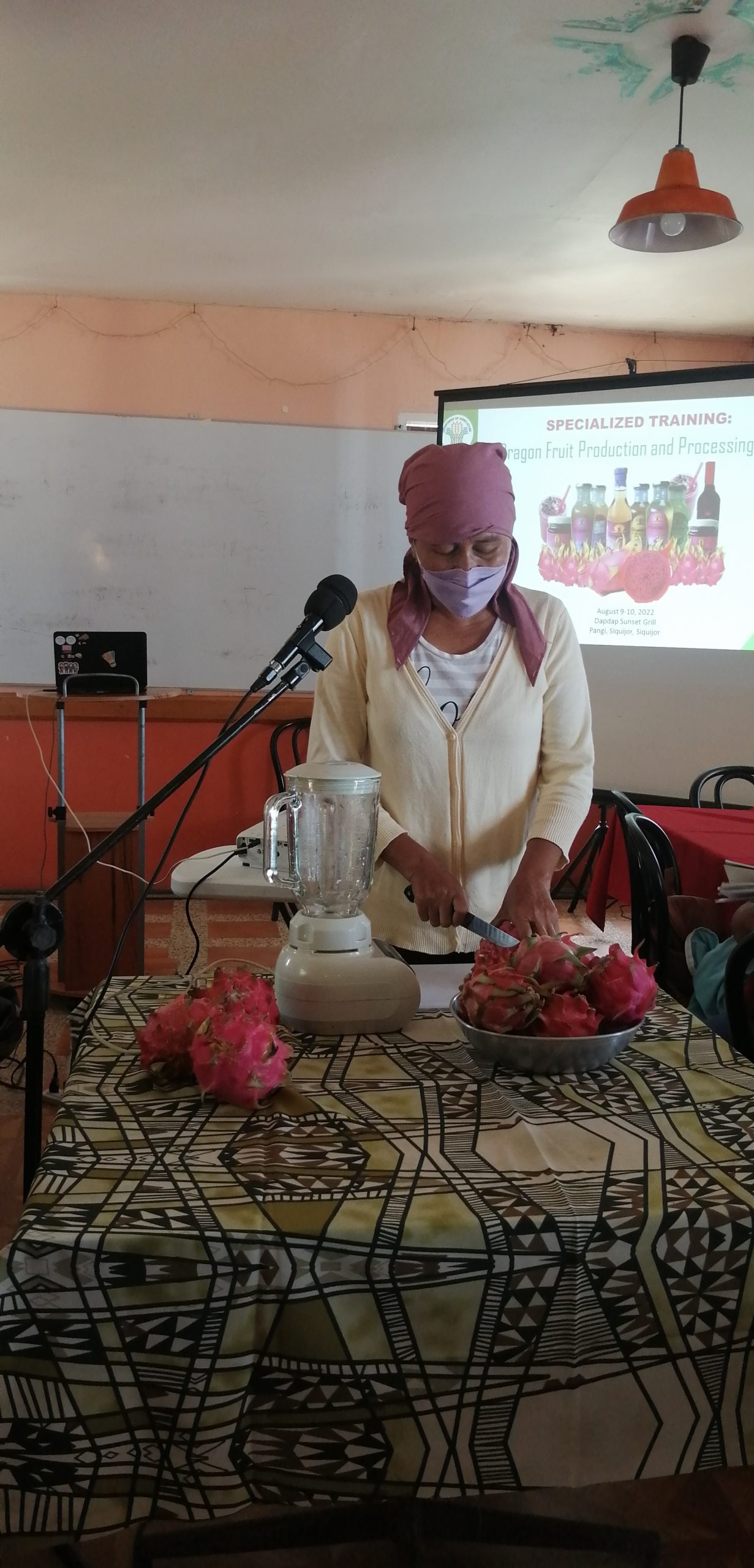
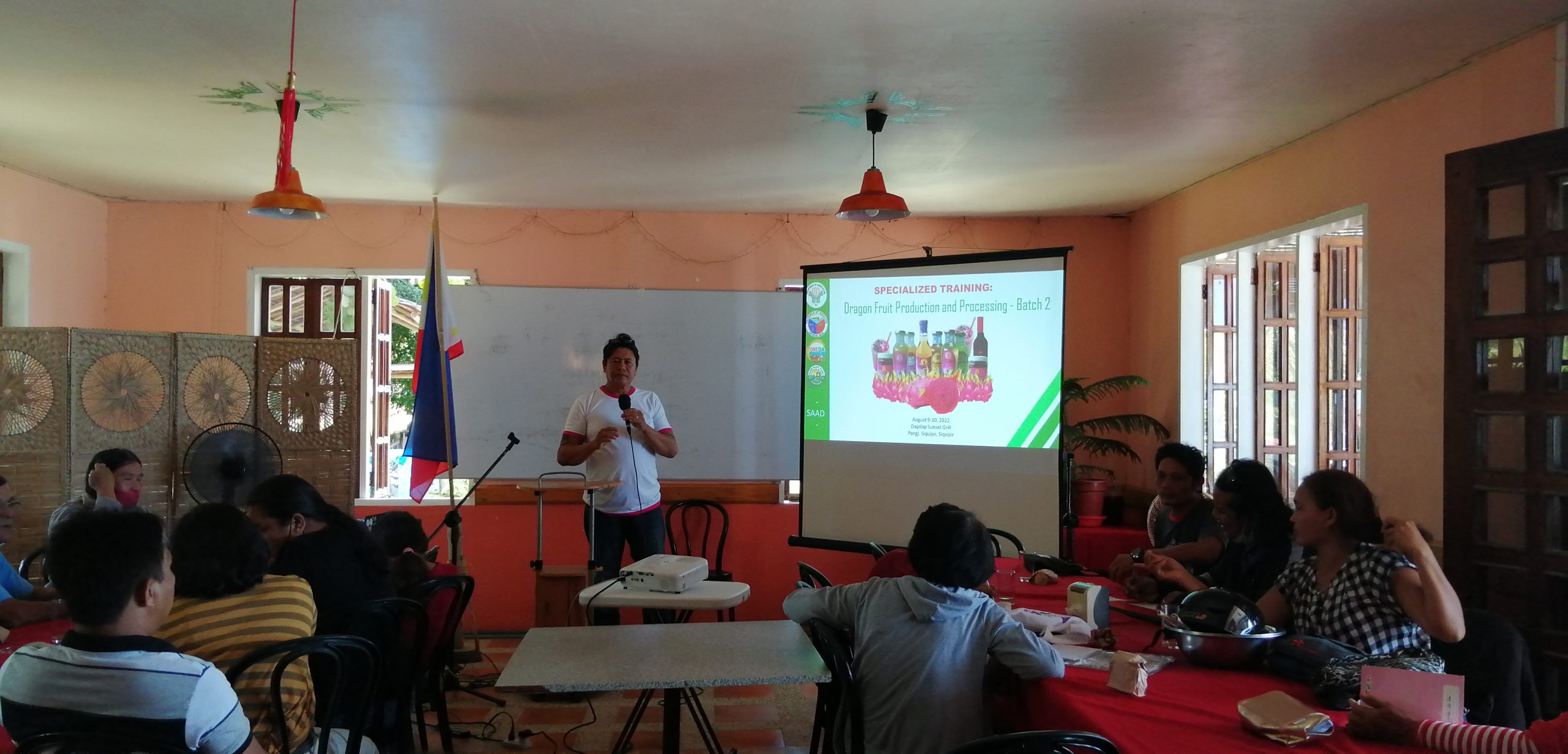
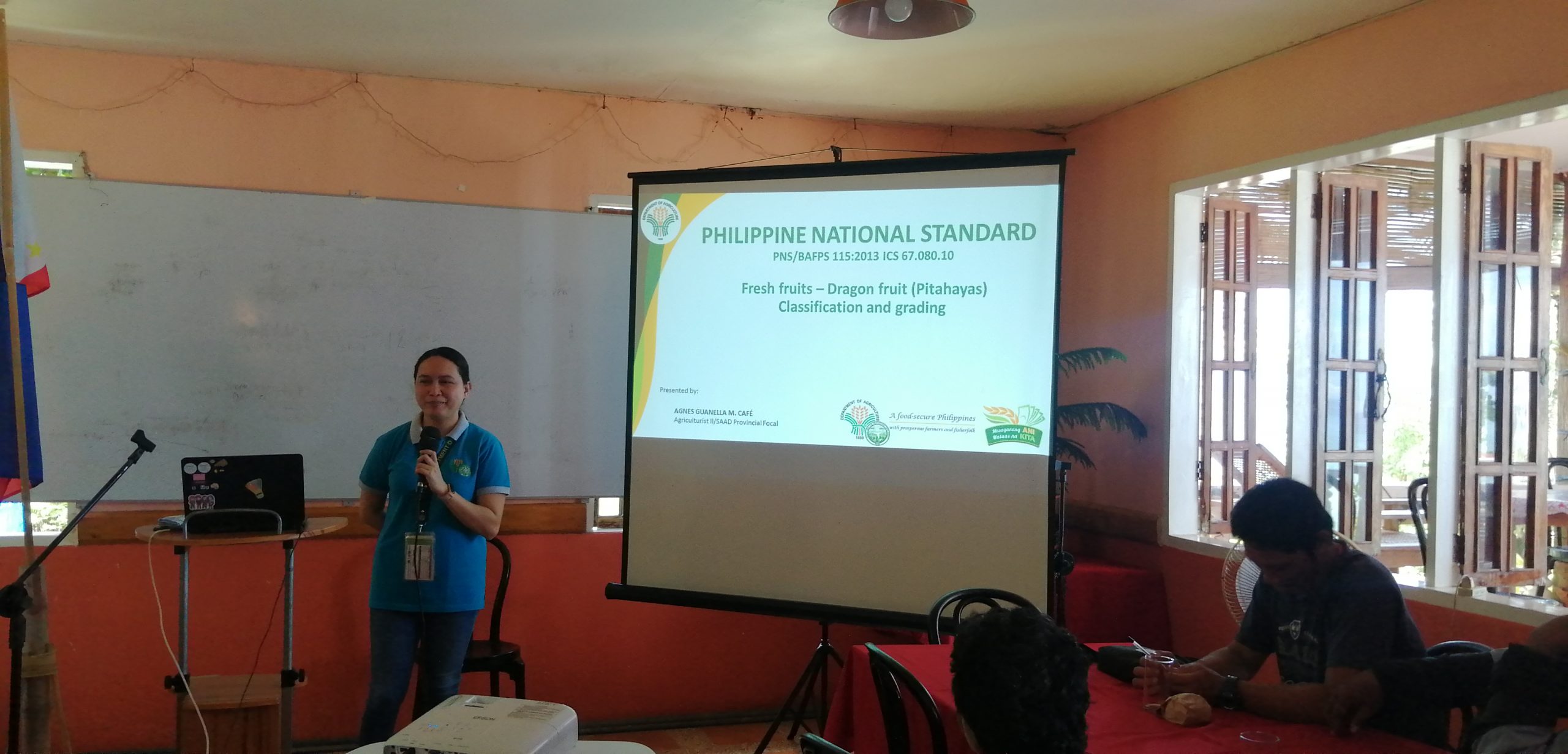
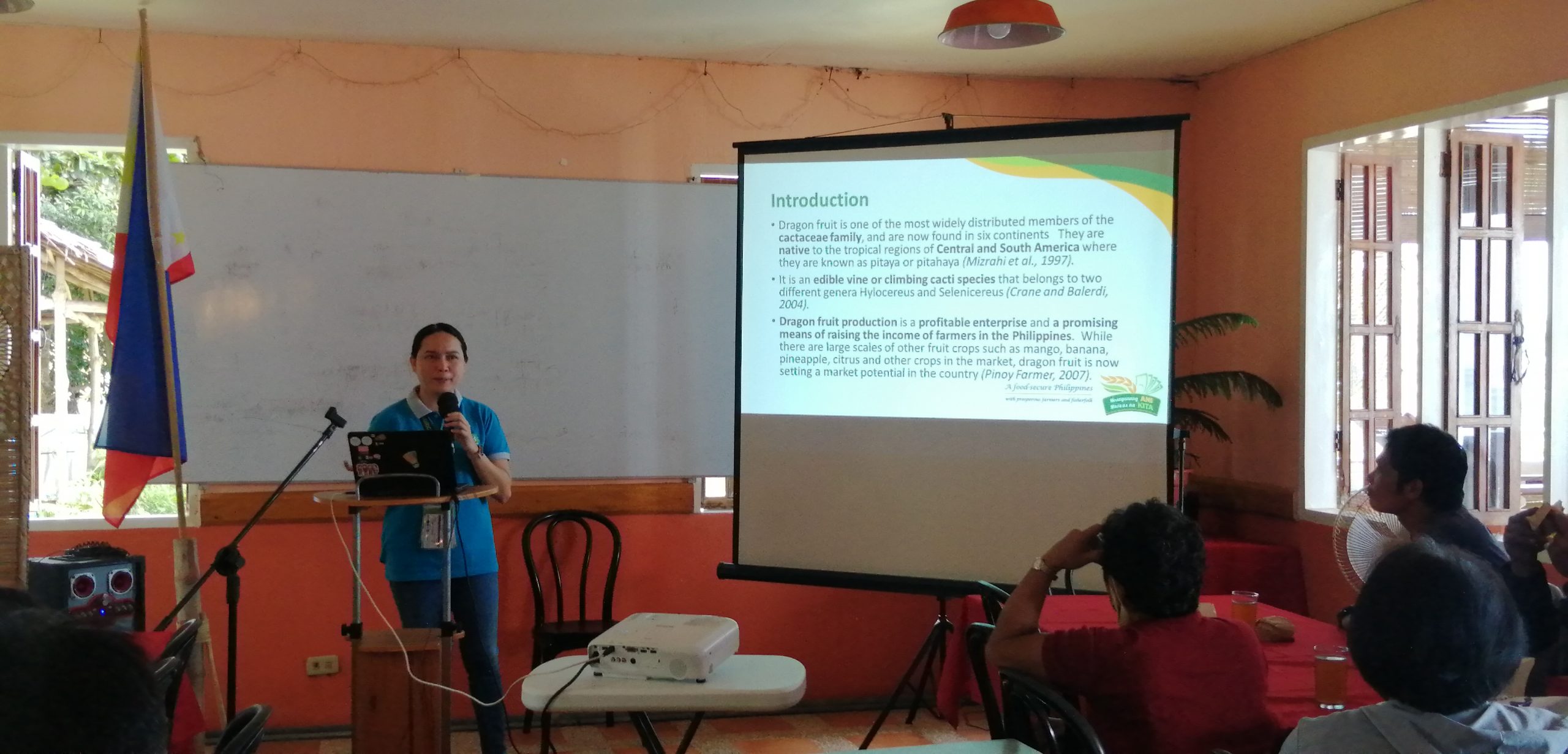
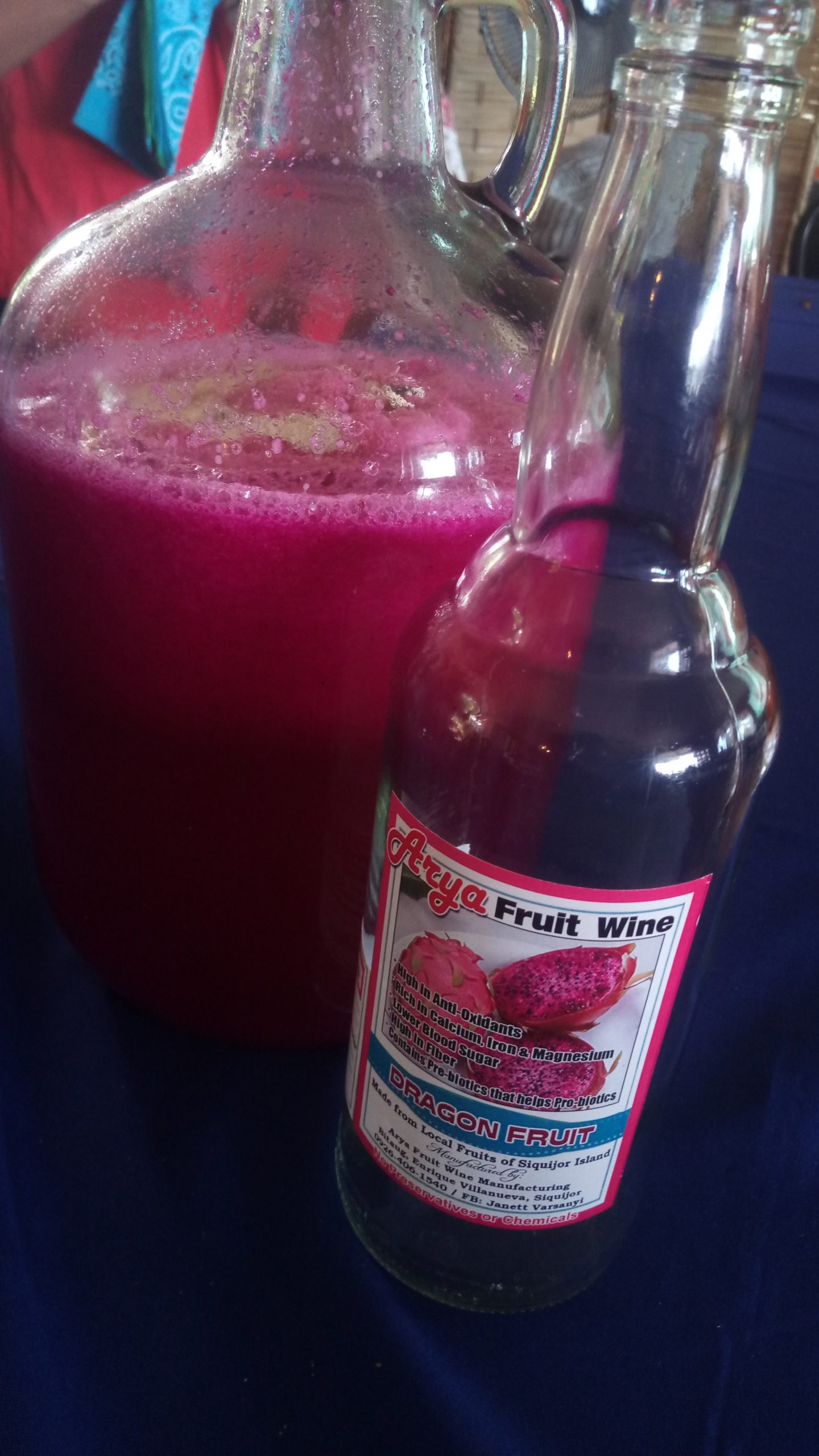
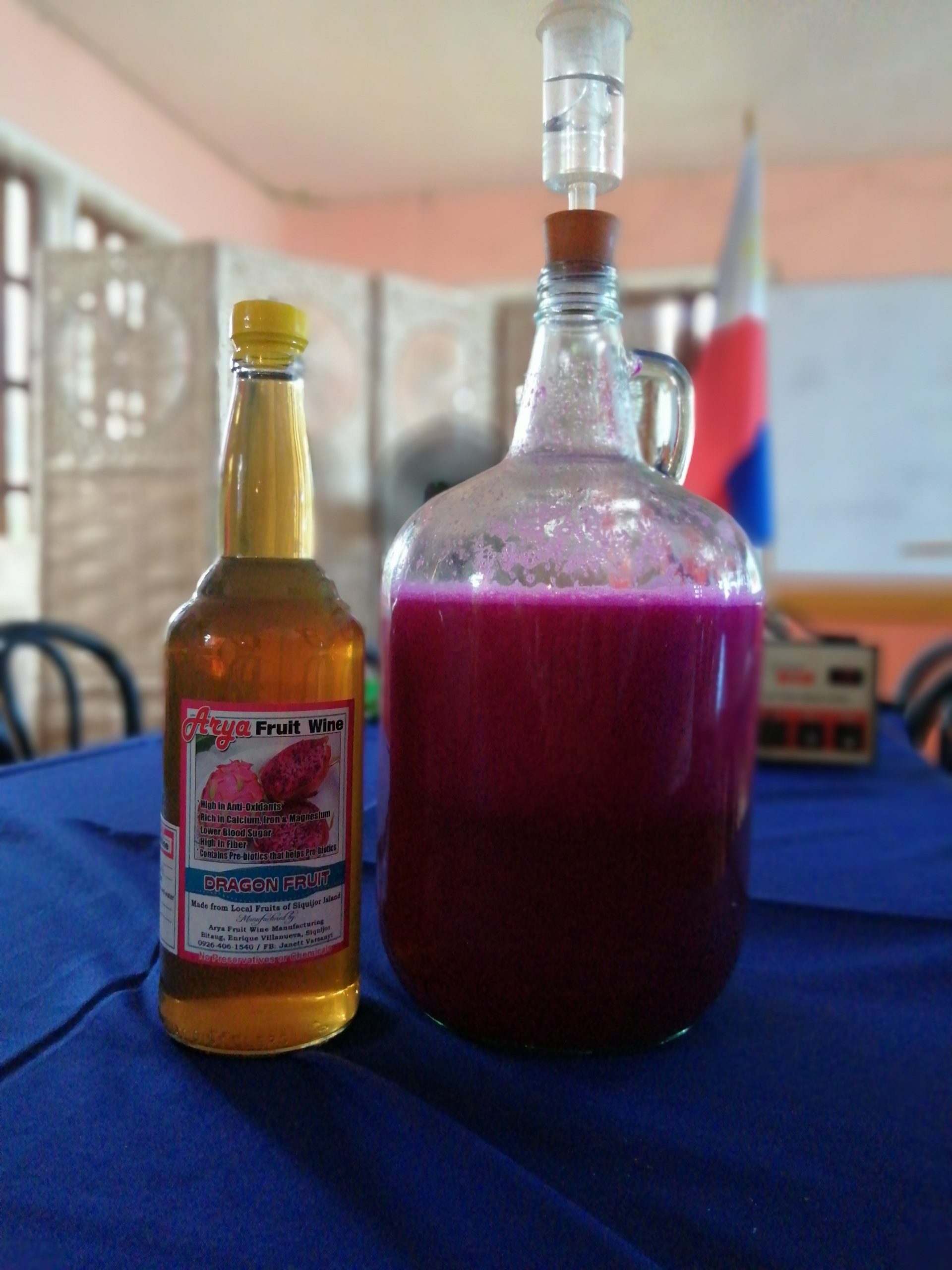
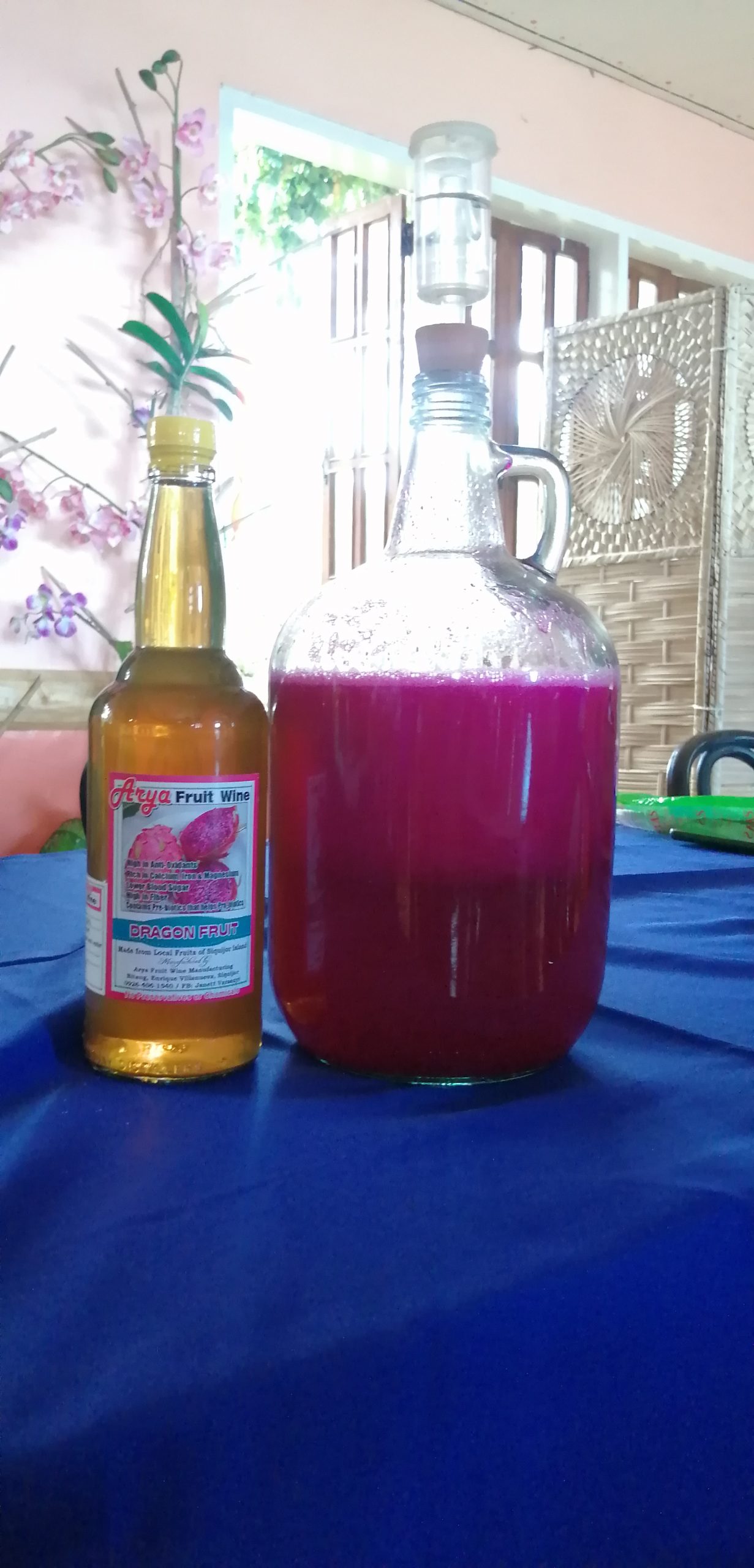
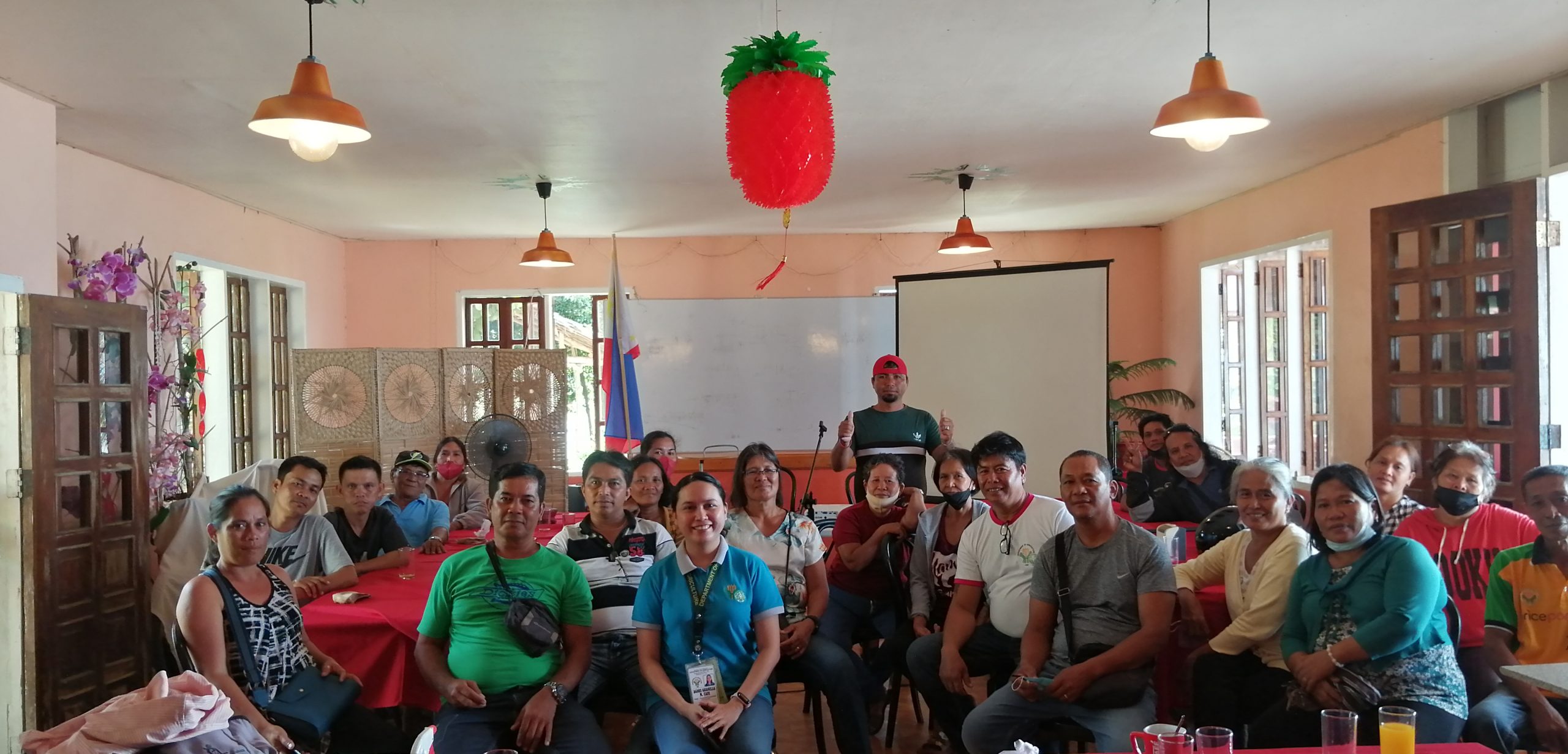
Comments (0)